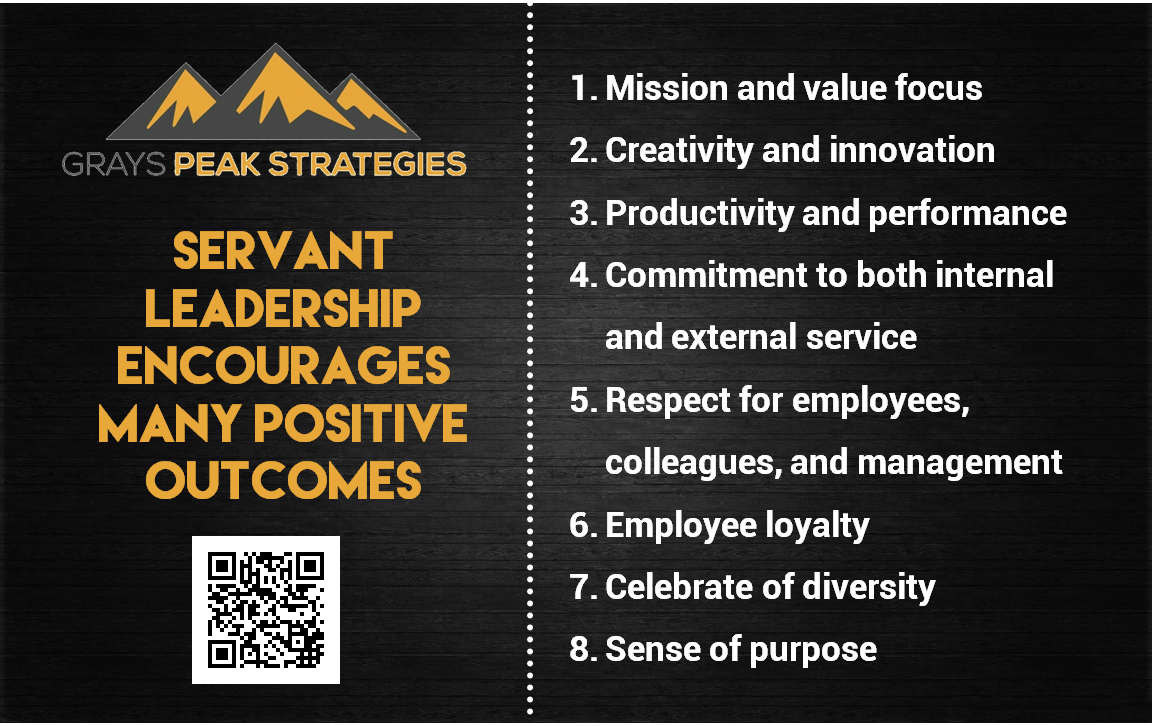Servant Leadership
Amy Kownack, Senior Partner, Grays Peak Strategies
When most people think of leadership they think of executives, people with fancy titles, the highest ranks or those with many degrees. For me it's more about the qualities of the individual or behaviors one conveys. Leadership takes many forms and I've been as impressed with the leadership qualities of front line staff as I have of a CEO, it has more to do with their ability to motivate or inspire others to take action. The qualities of a servant leadership resonate with me as a style that is most effective to drive meaningful results.
What is servant leadership? Servant leadership is a philosophy and set of practices that enriches the lives of individuals, builds better organizations and ultimately create a more just and caring world. According to Robert Greenleaf, a servant leader focuses primarily on the growth and well-being of people and communities to which they belong. While traditional leadership generally involves the accumulation and exercise of power by one at the top, servant leadership is different. This style shares power, puts the needs of others and greater good first and helps people develop and perform as highly as possible. What could be a better philosophy at this point in history? I look around at our nation's problems, the daily news stories, or issues with the upcoming election, and see the requisite for society to reflect on the greater good for all. We are at a pivotal moment where we need less definition of our differences and more alignment of being in this together.
I spent several days at the national conference of child support directors (NCCSD) in mid-June and felt privileged to be in a room with leaders, many of which practice servant leadership qualities on a daily basis. As a collective, we all have differing political affiliations, backgrounds, geographical upbringings and education, but our purpose and goals are clear which allows common purpose to prevail. The program is not easy-there are often challenging policies, insufficient resources, and conflicting views on what is wanted by the parties involved, along with federal guidelines, time frames, and performance requirements, yet year-after-year, outcomes improve for families.
Servant Leadership not only improves outcomes, it creates a culture of organizational success. If only our model of success and servant leadership could be the norm throughout society, what a better place it would be for all! Queen Elizabeth II, recently said "I know of no single formula for success. But over the years I have observed that attributes of leadership are universal and are often about finding ways of encouraging people to combine their efforts, their talents, their insights, their enthusiasm and their inspiration to work together." I couldn't agree more and we at Grays Peak Strategies look forward to the opportunity to help support your team in developing great leaders.

